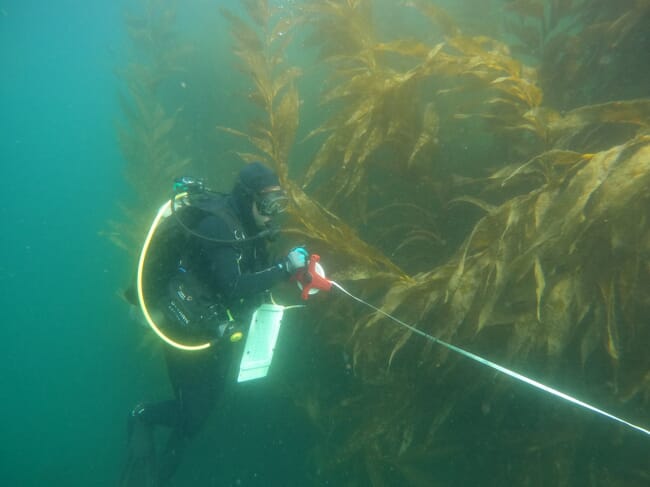
The grant will allow Ocean Rainforest to grow kelp over 86 acres of ocean off the coast of California © Ocean Rainforest
The funding comes through a Plus Up award, from the US Department of Energy's Advanced Research Projects Agency – Energy (ARPA-E) as part of the Mariner programme. This milestone achievement marks a significant leap forward in Ocean Rainforest's commitment to advancing offshore giant kelp cultivation technologies in California.
The company’s main production centre is in the Faroe Islands, but the award will allow it to operate an 86-acre, offshore Macrocystis pyrifera cultivation testbed in the Santa Barbara Channel. This effort will allow the Ocean Rainforest team to pioneer the development and demonstration of high yield macroalgal cultivation technologies in true offshore conditions.
In partnership with other Mariner Awardees, Ocean Rainforest will test innovative aquaculture technologies such as automated and consistent outplanting, partial harvest technology, upwelling facilitated by system design, and automated monitoring that will advance the industry toward economically feasible open-ocean cultivation.
Moreover, the Plus Up will enable pilot processing of biomass from the offshore site and facilitate process optimisation for target market segments, such as biostimulants and functional feed ingredients, that can reduce the carbon footprint in the food and feed supply chain.
Seaweed cultivation is widely recognised as among the most sustainable and environmentally responsible forms of biomass production. In comparison to land-based agriculture, seaweed farming uses no arable land or freshwater and, in most cases, requires no additional fertilisers. Seaweed cultivation is also widely regarded as the least environmentally destructive form of aquaculture given that seaweed farms support marine biodiversity by providing habitat for marine wildlife, mitigate eutrophication by absorbing excess nutrients from the surrounding waters, and may facilitate resilience against localised ocean acidification.
Olavur Gregersen, CEO of Ocean Rainforest said in a press release: “We are grateful to our funders, project partners, and team for all their support and hard work in the context of this Plus Up award. This award from ARPA-E's Mariner Program signifies a powerful endorsement of our vision and dedication to creating a more sustainable future.”



